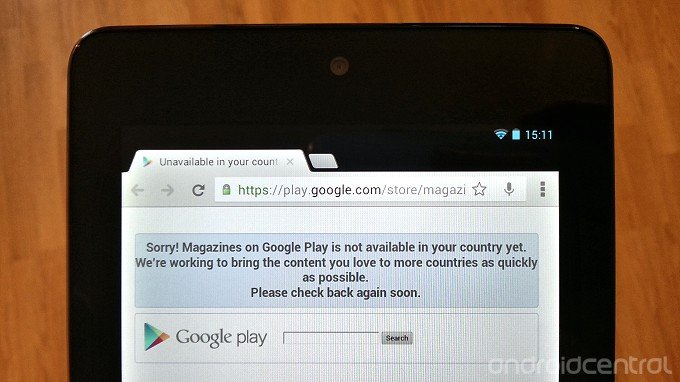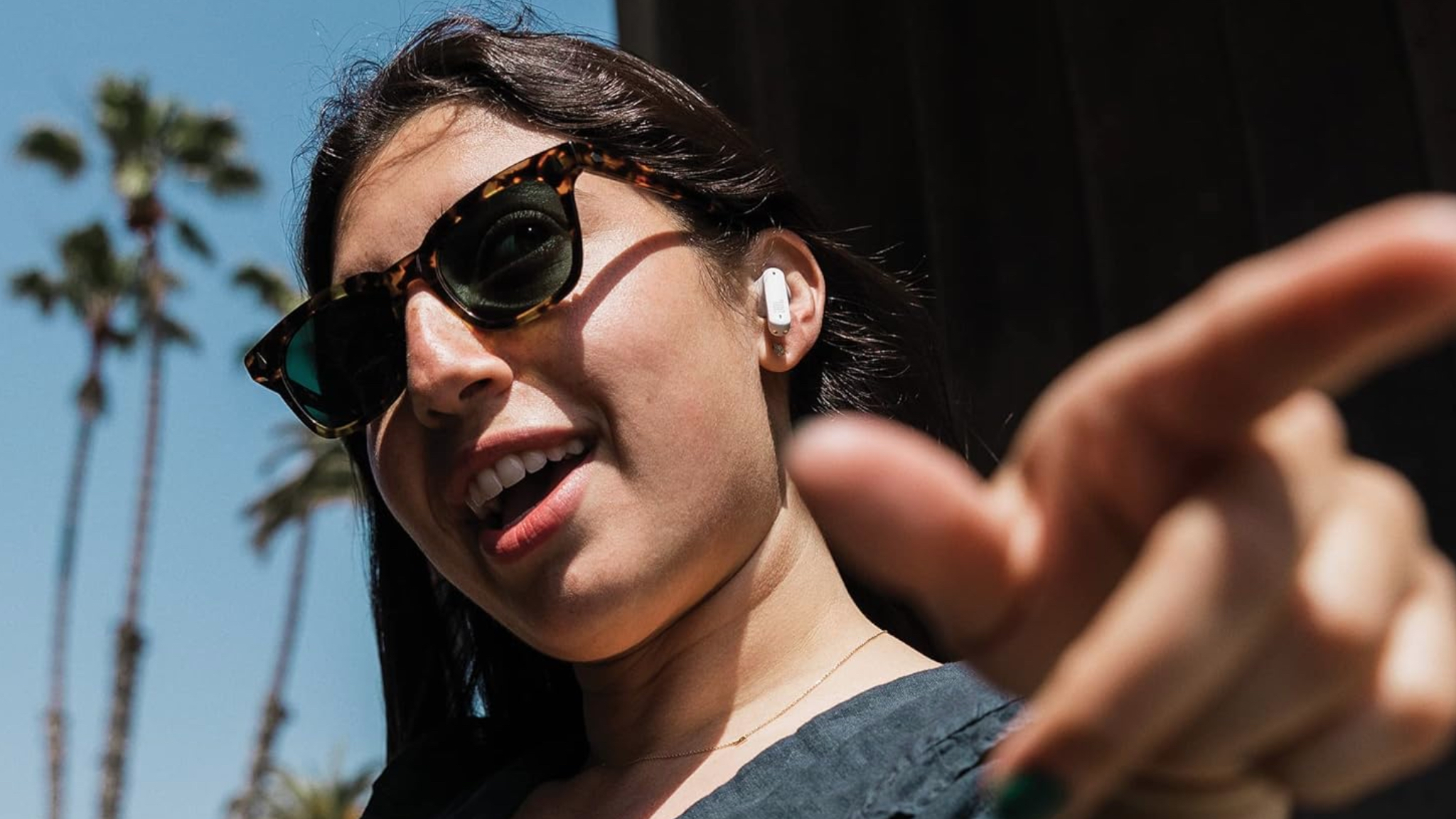Nexus 7: The internationally challenged tablet

I like my Nexus 7. It’s speedy, well-designed and runs a pure, unmolested version of Android 4.1 Jelly Bean. But since I’ve returned with it to the UK, Google’s flagship tablet has seemed just a little less magical than it was in sunny San Francisco.
To understand why, you have look at the main purpose of the tablet. As we repeated throughout our coverage of the new Nexus devices at Google I/O, they represent a window into the content-rich world of Google Play. But a content consumption device is only as strong as the stuff it allows you to consume, and outside of the U.S., the Nexus 7 is severely impaired in this area.
Of the six main parts of Google Play -- music, books, apps, movies, TV and magazines -- three are unavailable outside of the U.S. So if you’re ordering a Nexus 7 in Europe or anywhere else that’s not America, you’ll have to look elsewhere for your streaming TV, magazine and music fix. (Sure, you can monkey around with proxies to get your non-U.S Google account enabled for Music streaming if you want, but that’s beyond most folks.)
What’s more, the lack of certain cloud-based solutions from Google is compounded by the fact that the cheapest (and likely most popular) version of the Nexus 7 ships with 8GB of storage, of which just under 6GB is available for your own stuff. That’s not much of anything. The 16GB version will offer 13 or so, but that’s not exactly spacious either.
The counter-argument is that the Nexus 7 is ludicrously cheap, even in the UK. Over here, tech buyers are accustomed to being swindled by the direct swapping of dollar signs for pound signs. That’s not the case with the Nexus 7, which will sell for £159, and the importance of that shouldn’t be understated. Just months ago that kind of tablet budget would’ve landed you squarely in craplet territory, so to have a quad-core flagship at this price point is impressive indeed. And as The Verge points out, the competition in the 7-inch tablet space isn’t quite so fierce outside the U.S, where there’s no incumbent Kindle Fire or Nook Tablet.
Nevertheless, the Nexus 7 is a Google Play device, and with half of these services missing, international buyers will find themselves with a significantly reduced content library, and consequently a device which represents poorer value for money. Google is also impacted financially, as Nexus 7 owners outside the U.S. will have to pay someone else for their music, magazines and TV content. It’s all part of a wider problem with many of the cooler Google services (Google Voice, anyone?), which are similarly restricted.
Of course, if the folks at Mountain View were able to make the full Google Play experience available to everyone, everywhere, we’re sure they would. Licensing issues are more than likely the reason I’m not able to buy music or TV shows from Google on this side of the Atlantic. These things can be tricky, as evidenced by the fact that Warner artists still aren’t on Play Music in the U.S. But now that Google’s selling its aggressively-priced (and presumably aggressively-marketed) tablet directly to consumers in Europe and elsewhere, we hope it’ll redouble its efforts to bring them Google Play in its entirety.
Get the latest news from Android Central, your trusted companion in the world of Android
The launch of the Play devices store in the UK is an important first step, and one we’re sure will lead to the company selling future Nexus smartphones directly to consumers, in time. But as long as significant chunks of Google Play are U.S.-only, these devices will be just as internationally challenged as the Nexus 7.

Alex was with Android Central for over a decade, producing written and video content for the site, and served as global Executive Editor from 2016 to 2022.
